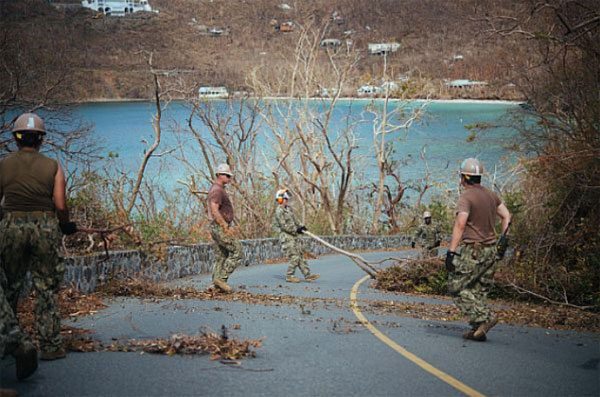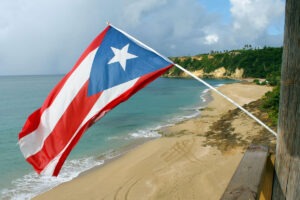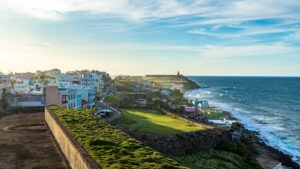
October 13, 2017; CNN, The Root, and Education Week
Over the last several weeks, four serious storms damaged sections of the United States, making this year’s hurricane season distinct. Hundreds of lives were lost (and we have not stopped counting), thousands of homes and business were destroyed, millions were forced to relocate, and the costs of repairing or replacing the damage will total billions of dollars. First responders, volunteers, and nonprofit organizations stepped forward to ease pain and help return lives to some degree of normalcy, shining examples of heroism and compassion in response to the human toll the storms took.
Our leaders’ words, however, seem to tell some very different stories about what American citizens can expect from their government as the rebuilding effort goes forward. In the wake of Hurricane Harvey, President Trump said the resources of the federal government would be with the people of Texas “today…tomorrow, and… EVERY SINGLE DAY AFTER, to restore, recover, and REBUILD!” Visiting Florida in the aftermath of Hurricane Irma, he pledged, “We are there for you 100 percent.” However, the US commitment to Puerto Rico has sounded very different. Rep. Scott Perry (R-PA) said of Puerto Rico, “There’s only so much the US can do to help…I would then again say, ‘What is enough?’ What is the right amount to satisfy whoever says we’re not doing enough. It’s regrettable and it’s sad for those people but there only is physically, humanly possible so much that any nation could do in the wake of devastation.”
While both Florida and Texas also face significant recovery challenges and are hardly out of the woods yet, the situation in Puerto Rico is extreme and the island remains paralyzed. According to CNN, “Many communities remain cut off, with roads blocked and no phone service.…There is no Internet, no way to get cell phones working, and limited ways to communicate or get information. More than 1.2 million people are without potable water. Some people line up daily to fill up buckets with water from tank trucks, while others collect water from mountain streams.”
And, of course, the entire school system of Puerto Rico has been disrupted, which will have a long-term impact on every child. According to Education Week:
At a minimum, about 35 instructional days will be lost if schools begin something like regular academic work later this month. For many, that lost time could extend for months. And the delay, however long, will have a tremendous domino effect. To name just one example, college entrance exams for many students were slated to start the week of October 9th.
Sign up for our free newsletters
Subscribe to NPQ's newsletters to have our top stories delivered directly to your inbox.
By signing up, you agree to our privacy policy and terms of use, and to receive messages from NPQ and our partners.
But before they can return to their educational mission, the need for schools to act “as warehouses for food to distribute to communities” will need to ease.
Is the slow and painful path back for American citizens living in Puerto Rico and the US Virgin Islands just a reflection of their being islands, which are harder to support? Or is it a reflection of incipient bias? Writing for The Root, Columbia University professor and filmmaker Frances Negrón-Muntaner characterized the differences between Texas, Florida, and Puerto Rico as black and white: “Puerto Rico’s crisis is not generally seen as a racial matter. But it should be.” The struggling recovery reflects how deeply racism is ingrained. As Negrón-Muntaner notes, just as low-income communities of color fared worse during Katrina (and currently in the responses to Harvey and Irma), even within Puerto Rico, response is differentiated by race:
Some of the poorest and hardest-hit areas like the municipality of Loiza are predominantly black. Assistance, however, has tended to come faster to less affected but more affluent and whiter cities.
The way federal financial assistance is being offered to Puerto Rico reflects an attitude embedded in Puerto Rico’s colonial history. US Representative Luis Gutierrez, in an interview with Democracy Now’s Amy Goodman, said:
The headlines were “Relief going to Puerto Rico.” Yeah, there was relief going to Puerto Rico: $5 [billion] loan. Why a $5 [billion] loan? Why aren’t we giving them a grant, so that they can pay their bills and keep the government open? No, what we do is we give them a loan. Now that is going to be added to the $74 billion, $5 billion more. How does that help? But remember, in that bill yesterday, what did we do? We erased $16 billion worth of debt to the National Flood Insurance. Why can’t we release some of the debt from the people of Puerto Rico, debt that was incurred because we imposed on the island of Puerto Rico the US Merchant Marines, under the Jones Act, the most expensive shipping? If you add up the costs since 1920 of the imposition of the Jones Act, making us use only American-built ships with American people running the boat, you add all that up, there’s the $72 billion.
Puerto Rico is a Caribbean island. It is harder to reach than Miami or Houston, which does raise the transportation bar. But the difficulty we see in getting help to Americans in need is not just a problem of geography. The island’s poverty is not the result of a lazy, uncaring citizenry; its staggering debt is only partly a result of bad government. All of it, including the fragile electrical grid and water system, is rooted in the island’s status as a federally owned territory whose citizens cannot vote for those who make the national policies that affect their lives.—Martin Levine













